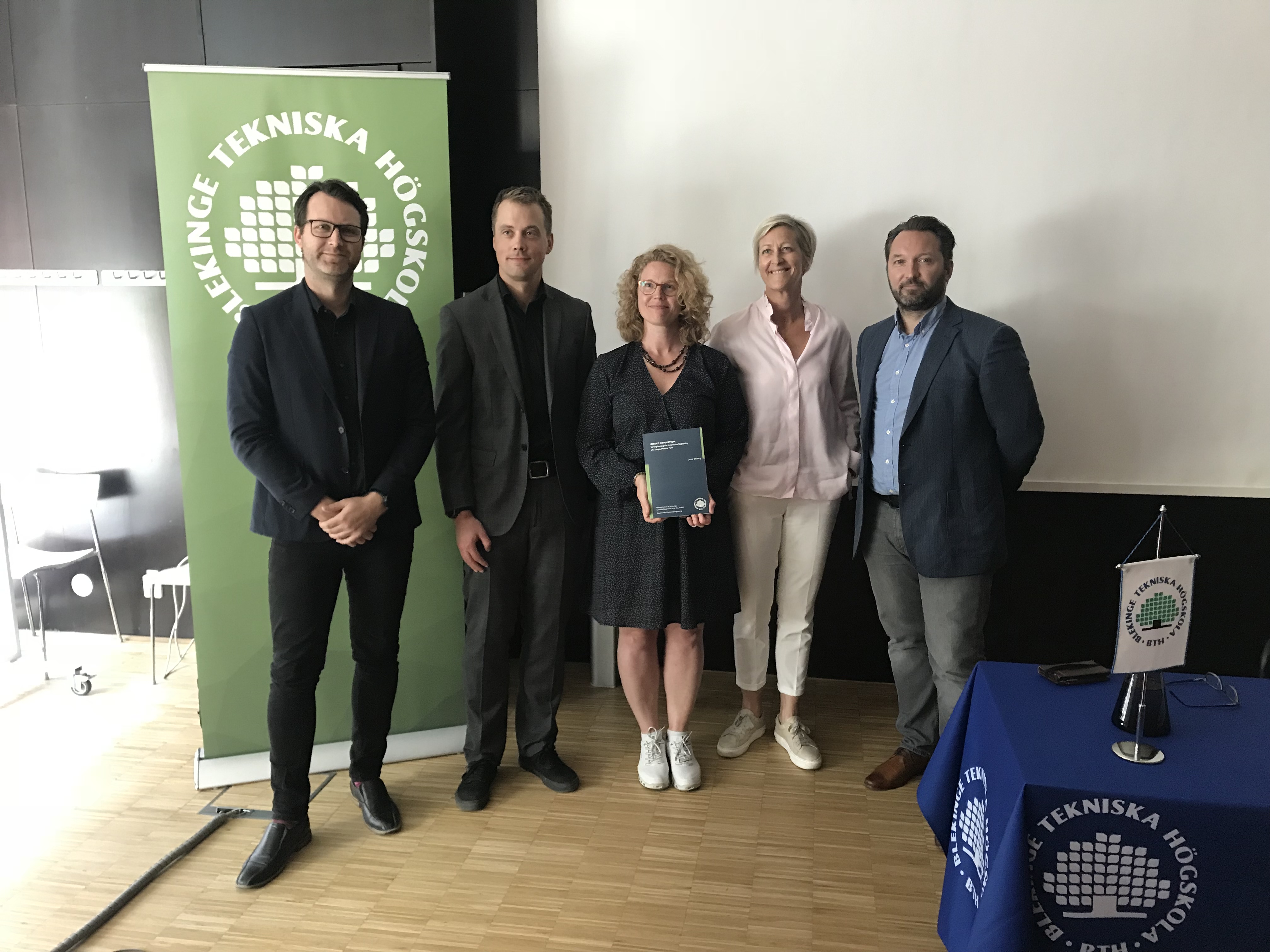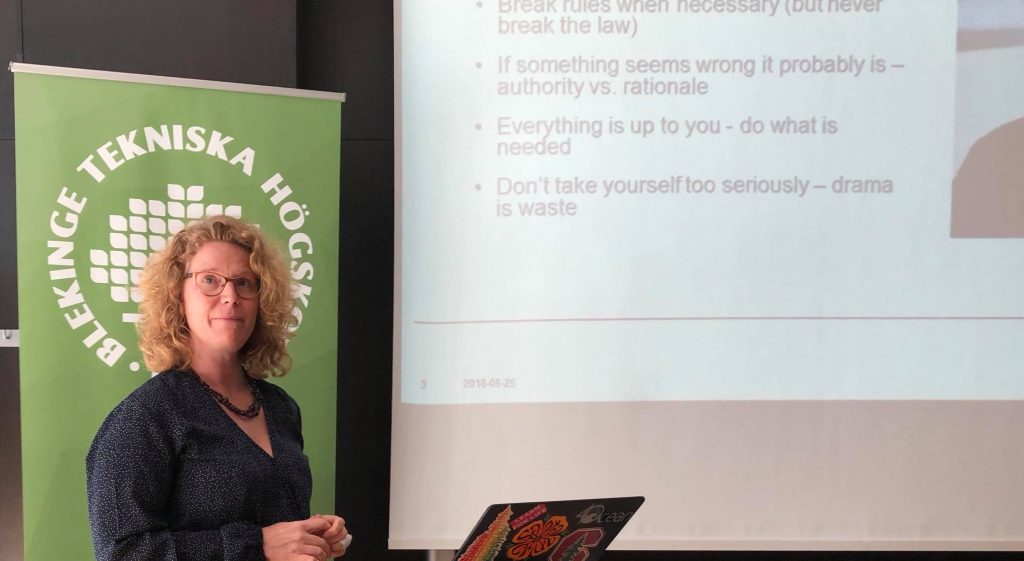
Congratulations Jenny Elfsberg, Licentiate in Engineering!
- Post by: Tobias Larsson
- 26th May 2018
- No Comment
Jenny Elfsberg presented her licentiate thesis entitled “Insert innovation – Strengthening the innovative capability of a large, mature firm” in front of an interested audience friday afternoon.
Jenny presented the context and motivation for her research and then took the audience through research methodology and findings (thesis consists of a summary part and three individual research publications) and then landed in a summary of her findings.
Opponent for the day was Innovation Engineering researcher Malin Olander Roese of Lund University. Malin went deeper into details to enlighten and enrich the knowledge around the material and in order to get a sense of how Jenny had approached the research and also on how conclusion where made.
At the end also the audience had the chance to ask questions on the research.
Examiner Professor Tobias Larsson then concluded by declaring that Jenny had passed the exam and achieved the licentiate degree.
Besides the examiner the supervisors of Jenny has been Assistant Professor Christian Johansson Askling, and Associate Professor Andreas Larsson.
Thesis abstract
Large, mature firms that during many years have operated in stable and predictable business environments tend to have clear, predictable and linear product development processes with well-defined roles and responsibilities for everyone involved. The ways of working in such an organization are much different from how entrepreneurial start-up companies operates, with a lot less formalized system, more relying on transparency and dynamic collaboration – for their survival.
When the business environment dramatically change for large, mature firms their formalized ways of working need to be complemented with dynamic and
entrepreneurial mindset. Longevity for companies can be ensured through organizational ambidexterity; meaning to simultaneously exploit current technologies on current markets through incremental improvements and explore new technologies and future markets to ensure future competitiveness. The purpose with this thesis is to build a deeper understanding of how exploration capabilities can be re-injected into a large, mature firm without disturbing the exploitation work, the fit-for-purpose daily business.
This thesis summarizes the research performed by the author, as industrial PhD student and responsible for the initiative to improve the company’s innovative capability. The work started in 2009 and includes several components, inserted into the company in a subtle way; the measuring innovation component was added in 2014 and provided data that made it possible to see the effects of the initiative.
Conclusions from this work is that the tested approach was demanding for the core team, improved the innovative capability of the company and led to awareness that organizational ambidexterity is necessary. The effectiveness of such an initiative would increase with earlier implementation of innovation measurement and more involvement, education and engagement of line managers.
Keywords: Innovation, idea sharing, measuring innovation, time for ideas, innovative capability, innovation teams, innovation coaches, innovation engineering, ambidexterity, exploration
More info
- Forskning för ökad innovationsförmåga i stora traditionella företag (BTH Press Mynewsdesk 20180524)
- Insert innovation – Strengthening the innovative capability of a large, mature firm (Thesis download)

